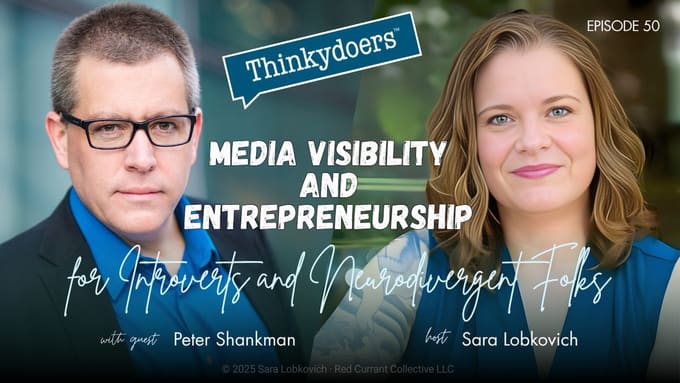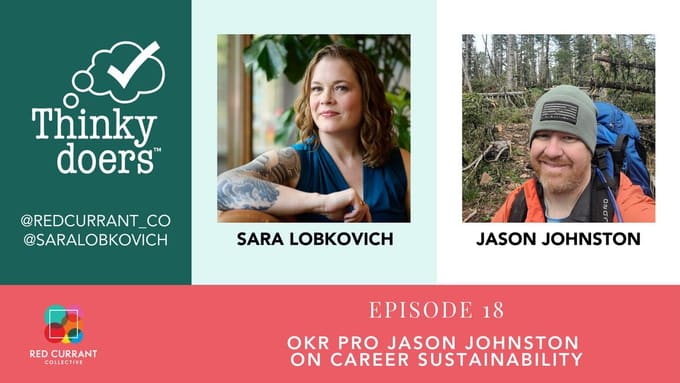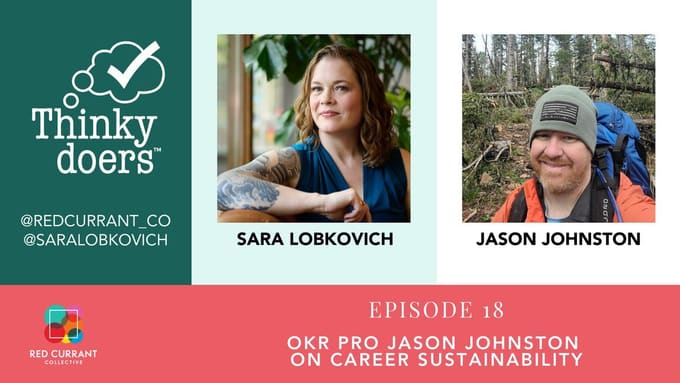Want OKR Success? Don't Start Your Implementation By Choosing an OKR Platform
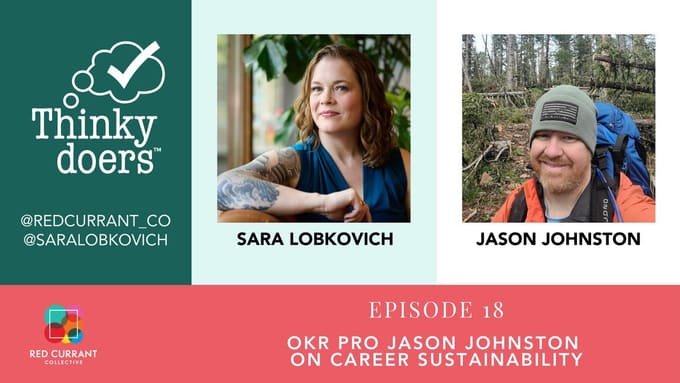
This blog post is a pre-launch preview of an upcoming Thinkydoers episode based on a YouTube Live delivered as part of my Goal Fridays series . This page will be updated to include the produced Thinkydoers episode once it’s available and published. In the meantime, you can watch the full replay via YouTube !

Are you considering implementing OKRs in your organization?
Before you dive headfirst into choosing an OKR platform, listen to this episode.
You might be surprised to learn that starting with software could be setting you up for failure.
Show Notes:
In this eye-opening Live, OKR expert Sara Lobkovich challenges the common approach to OKR implementation and offers a game-changing perspective. Here’s what you’ll learn:
-
The pitfalls of starting your OKR journey with software adoption
-
Why methodology should come before technology in OKR implementation
-
How to track OKRs effectively without complex platforms
-
What leaders and team members really need from an OKR system (hint: it’s not just pretty dashboards)
-
The importance of cultural transformation in successful OKR adoption
-
Simple, low-fidelity tools for OKR tracking that actually work
-
How to know when your organization is truly ready for an OKR platform
Whether you’re just starting with OKRs or looking to improve your current implementation, this episode provides invaluable insights for a more successful, methodology-focused approach to OKRs.
Don’t miss Sara’s practical tips and real-world examples that will change the way you think about OKR adoption. Watch the full Live video via YouTube, or you can read a summary of its main points below!
In the world of Objectives and Key Results (OKRs), there’s a common misconception that the key to successful implementation lies in choosing the right software platform. But what if I told you that this approach could be setting you up for failure? Let’s dive into why a methodology-first approach to OKR adoption is crucial for long-term success.
The Pitfalls of a Tool-First Approach
The Allure of OKR Platforms
It’s a familiar story: an executive gets excited about OKRs, hands out copies of “Measure What Matters,” and the organization dives in. But when challenges arise, the first instinct is often to look for a technological solution.
OKR platforms are alluring. They promise to solve all your problems with slick interfaces and automated dashboards. But here’s the catch: without a solid understanding of OKR methodology, even the best software can’t guarantee success.
The Hidden Costs of Premature Software Adoption
When organizations rush into adopting an OKR platform, several issues can arise:
-
Oversimplification of methodology
-
OKRs feeling “bolted on” rather than integrated
-
Underestimation of necessary cultural shifts
-
Focus on making executives happy rather than driving real change
The Power of a Methodology-First Approach
Starting with Leaders
A successful OKR implementation starts at the top. Leaders need to model best practices, learn the key terms, and truly understand what makes a good objective and key result.
Focusing on Quality Over Quantity
It’s crucial to establish and maintain the integrity of what we call objectives and key results. Quality assurance practices should ensure that nothing gets labeled a key result unless it truly is one.
Embracing Cultural Transformation
Implementing OKRs is more than just setting goals. It involves significant decisions about transparency, communication, and organizational structure. This cultural shift is often underestimated but is critical for success.
Tracking OKRs Without a Platform
The Power of Simplicity
Believe it or not, some of the most successful OKR implementations start with simple tools like spreadsheets and slides. Here’s why:
-
Forces focus on what’s truly important
-
Easier to manage and update
-
Promotes understanding of the underlying methodology
Visual Representation Matters
A single-page view of OKRs can be more effective than complex software dashboards. It allows everyone to see how their work aligns with organizational goals at a glance.
What Leaders and Teams Really Need
Beyond Pretty Dashboards
While fancy software features are nice, what leaders and teams truly need from an OKR system are:
-
Clear, objective information for decision-making
-
Insights into progress, blockers, and resource needs
-
Ability to align work to what matters
-
A psychologically safe culture for honest progress reporting
Knowing When You’re Ready for a Platform
The best time to adopt an OKR platform? When your team is begging for one because they can’t manage without it anymore. This means:
-
They’ve embraced the methodology
-
They understand the value of OKRs
-
They’re ready to take their implementation to the next level
Starting Strong With A Focus on OKR Methodology
Successful OKR adoption isn’t about having the fanciest tool. It’s about understanding the methodology, embracing cultural change, and focusing on what truly matters for your organization’s success.
By starting with methodology and keeping things simple, you set yourself up for a more successful OKR journey. When you do eventually adopt a platform, you’ll do so with a clear understanding of your needs and how to use the tool effectively.
Remember, OKRs are a powerful tool for driving organizational success, but only when implemented thoughtfully and with a strong foundation in methodology. Start there, and you’re already on the path to OKR success.
If you’d like to hear in advance about additional Live Goal Friday events, join the email list here. This post will be updated to include an edited version of the original Live Video compiled as a Thinkydoers Podcast episode soon!
Ready to Implement OKRs?
A 25-minute Q&A to see if we're the right match. You'll walk away with at least one actionable insight, whether we work together or not.
Book a Q&A Call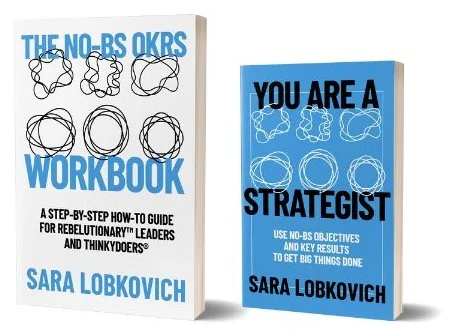
Get the Book
You Are a Strategist teaches you how to use No-BS OKRs to get big things done. Join 2,000+ coaches trained in this methodology.
Order Your Copy